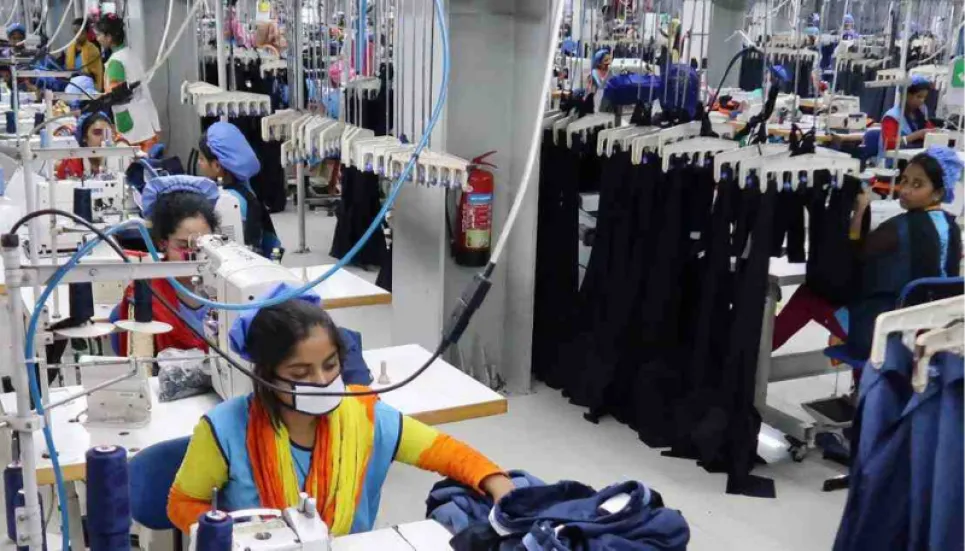Home ›› 08 May 2021 ›› Back

As high as 21.4 per cent apparel enterprises, who retrenched workers due to the Covid-19 pandemic, did not pay anything to the retrenched workers, says a survey.
On the other hand, only 41 per cent of the apparel employers claimed that they cleared all the due of workers during laying off or retrenchment.
A survey titled “Corporate Accountability of the RMG Sector in view of Covid Pandemic: Challenges in Ensuring Workers’ Well-being” conducted by the Centre for Policy Dialogue revealed the findings through a virtual dialogue on Saturday.
The survey was conducted on 102 RMG employers, 301 employed RMG workers and 100 unemployed RMG workers located in Dhaka and Gazipur.
“Majority of enterprises claimed that they have provided only a part of the entitled benefits of laid off or retrenched workers. While, even 21.4 per cent of enterprises did not pay anything to the retrenched workers,” said Khonadaker Golam Moazzem, research director of CPD in his keynote presentation.
About 21 per cent of the surveyed laid-off workers who were rehired again by the same employers did not receive anything from their employer during their laying off and 35.7 per cent of them received partial wage only, said the economist.
On an average, 11.3 per cent male workers were retrenched and female workers were by 8.7 per cent. This indicates that factories did not retrench female workers disproportionately.
Meanwhile, about 25 per cent of the garment factories cut jobs despite taking loans from the government stimulus package.
In the case of laying off and recruitment, the workers are still deprived of their basic rights, said the research findings.
Majority of workers were laid off during April-May, 2020 when enterprises received policy support to pay workers’ wages with the condition of no lay-off and retrenchment of workers.
Factories not only failed to comply with their due responsibility to pay workers entitled benefits but also received support violating the conditions, said Moazzem.
In this context, re-recruiting workers helped them survive but that did not justify keeping the dues of the retrenched workers and the Department of Inspection Factories and Establishments and the Bangladesh Bank have failed to monitor the irregularities, said the economist.
As per the survey findings, workers can hardly challenge the decision of their removal even if it seems unfair or illegal to them.
About 69 per cent of employers claimed that they notified the workers of such decisions well before it was implemented, while 70 per cent and 40 per cent of them claimed they informed the Workers Participatory Committees or trade unions and the DIFE respectively well before implementation of the decision.